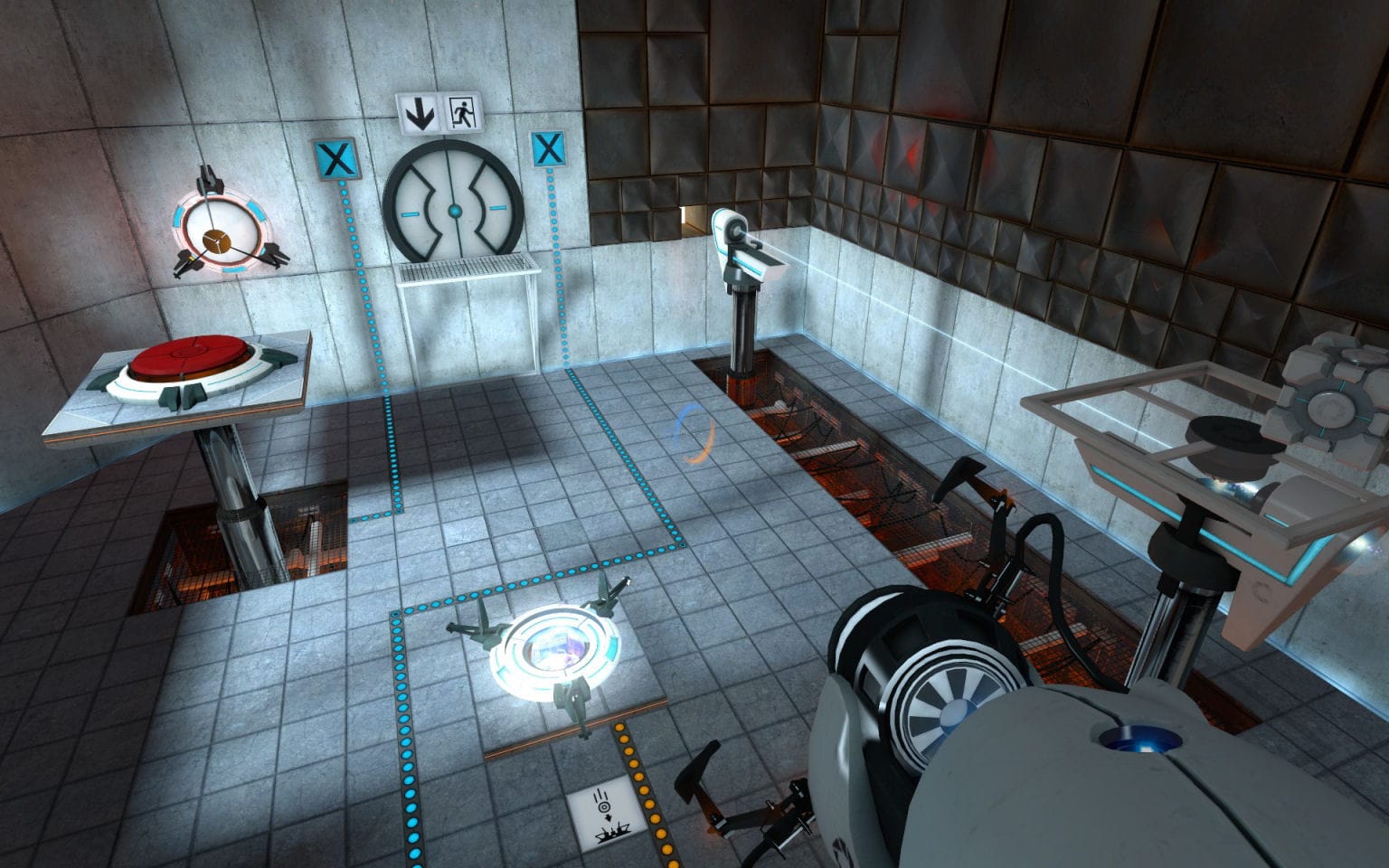When will videogames be part of the cultural canon?

It was a peculiar thing to happen during a college lecture: a duck had derailed class entirely.
The duck in question was of the Christmas variety, a holiday decoration under which was taped the spare key to the front door of the house which was Shittul’s homework to investigate. To clarify: Shittul was my student, the spare key was the solution to an introductory puzzle into the fictional Greenbriar residence of 2013’s acclaimed Gone Home, and I am a miserable failure of a videogames teacher.

Except I’m not a videogames teacher at all. Instead, I am one of the growing number of college professors using videogames in non-gaming classrooms as supplemental and introductory texts. In the case of my own classroom, Gone Home was an introduction to Walker Percy’s “The Loss of the Creature,” a common freshman-level essay about the authenticity of experiences. Though they are often shocked to find their go-to time-killers among the selection of go-to buzz-killers (i.e. books), students entering college this fall could very well find themselves learning about Portal and research ethics, Assassin’s Creed and history, God of War and mythology. And books too, of course.
Videogames, as a form of “literacy” are simply not high on the menu
“Videogames are remarkable in what they do is make the stakes high and immediately meaningful for a very diverse group of people,” says Jordan Shapiro, author of FREEPLAY: A Video Game Guide to Maximum Euphoric Bliss. “The things I teach—philosophy, psychology, humanities—for many of these subjects, videogames are not necessarily the best way to teach them.
“Plato is often the best way,” he laughs.
“But we need to be able to contextualize these concepts within something that is immediately graspable by students. Then, by giving them the option of where they want to apply these ideas, they find their own route to understanding the ideas.”
Ah, and therein lies the rub—games being “graspable by students.” For though the Pew Research Center informs me that 76% of American college students play videogames, year after year I continue to encounter a large number of students who, like Shittul, have no clue what in the hell they’re looking at. Games, as meaningful texts or casual time-wasters, are simply not in their well of experiences. While I can’t deny the excitement I get from students responding thoughtfully to Papers, Please, or Gone Home, or Passage, I also can’t help but wonder if, for the rest of them, the surge of videogames in the classroom is doing their college educations a disservice.
Or maybe the problem is just me.
My first time teaching videogames was December 2009, the University of South Carolina. The game: Modern Warfare 2, which contained a controversial segment called “No Russian,” wherein players accompany a group of terrorists as they go on a killing spree through a fictional version of Sheremetyevo International Airport. The goal of the assignment, as least per my scribbled lesson plan, was to examine how the game argues against the on-screen actions, specifically by making them un-fun. Well, I may as well have been teaching a meta-lesson on it. In a class where we’d already covered Plato, Adrienne Rich, and Foucault, I had hardly seen so many unamused eyes as these ones blinking back at me. But it wasn’t just unamusement—students simply didn’t know what they were looking at, or how they were supposed to use it.
fostering a critical way of thinking about media
“Where I’ve seen this is in teaching graphic novels,” Jordan tells me. “There were problems as simple as in what order to read the panels. But what it made really effective was how I reorganized my way of teaching. We would spend a lot of time looking at what is in the structure of the medium. What is it about graphic novels that makes them graphic novels? In that sense it becomes a really powerful class in thinking about differences between mediums and the possible messaging you can do with them.
“I think the same thing has to be done before we even get to videogame texts. That’s the opportunity to create the sort of basic literacy about videogames, so that by the time the student is really playing what they need to, they know how.”
So the answer to my question is … be a better teacher, basically?
Maybe; or maybe the problem is a little more complicated than that. I am, after all, not just a college professor but in fact a part of the 76% of U.S. faculty in American colleges and universities whose positions, according to the American Association of University Professors, fall into the “adjunct” category of professors—the majority of which are (as reported in a 2014 U.S. House of Representatives study) living below the poverty line. For many, the position is simply too tenuous to withstand much eschewing of the status quo, and the status quo at many colleges and universities in America is that you are teaching the cash cow. Videogames, as a form of “literacy,” are simply not high on the menu.
“Colleges today are badly out of kilter with their undergraduates and sorely in need of innovation,” writes James Paul Gee, the Mary Lou Fulton Presidential Professor of Literacy Studies at Arizona State University, in a recent exchange. “My work has always been not about games per se, but about introducing into schools—and out-of-school sites like museums and libraries—the sorts of ways good games teach and create good learning.”
When it comes to videogames and literacy (what’s called new literacy, “the ability to ‘read’ and ‘write’ the sorts of meanings that texts and games make use of”) James Gee is pretty much your go-to big brain. Though his research has focused primarily on K-12 classrooms, I had hoped his background would help me understand my predicament a little better—how, when I teach videogames as supplemental texts, it feels like I am only really reaching about half the class.

“We shouldn’t give people texts of types they are not well-prepared to read,” he says. “So, too, with games. College students need to learn how to ‘read’ (consume meaning) and ‘write’ (produce meanings) will all sorts of different tools and in all sorts of different genres if they are to be literate in 21st-century terms.
“If someone does not have the necessary preparation, then it is the job of a good teacher—inside good teaching and learning systems—to get them prepared.”
This notion arrives at the crux of the issue: though colleges and universities can’t control the level of “new literacy” that students enter into their institutions with, they can and should do so once these students enter in through the classroom door. As a young adjunct, I would love to structure my freshman-level rhetoric & composition courses around videogame literacy, but unfortunately a complimentary framework just isn’t there in even the next composition course they’ll take, much less the courses they’ll take beyond that. What’s more, for every Jordan Shapiro teaching Freud and videogames, you have another twenty adjuncts who, like me, can’t even pick the textbooks they use in their classes. Despite the percentage of America adults with a bachelor’s degree being at an all-time high, we must ask ourselves if our colleges and universities are really giving students the fundamental framework they’ll need to succeed in the future. I’m not so sure; but what I am sure of, is that we damn well should be.
“I don’t advocate for games in the classroom because I think it’s important that people learn about videogames,” Jordan says. “I do it for two reasons: one is to engage in contextualization; the other reason has to do with fostering a critical way of thinking about media and especially interactive media. Whether you play videogames or not, nobody in the world is going to get through the next 20 years without having gone through some kind of education into the digital, interactive, procedural process.”
“It’s about constructing a worldview”
For those on the frontlines of the college educational system, this shouldn’t be all that surprising, nor should arguments for it need be all that complex: the surge of videogames in the classroom is a disservice to some students, students who have already been disserviced by the expectations of the educational system at large. The good news is, fixing the problem—and the reasons we should want to—isn’t really all that different from what we’re doing already … just with a different focus.
“As it turns out, I don’t believe most of my students need to have read Plato. But I do teach Plato, and I insist on teaching The Republic, because in doing so students develop a critical way of thinking, about text and Plato and truth and rhetoric and ideas and education. It’s about constructing a worldview,” Jordan says. “We want students to recognize their worldview as being constructed so that they are choosing to interact with that worldview, not having it chosen for them.”



